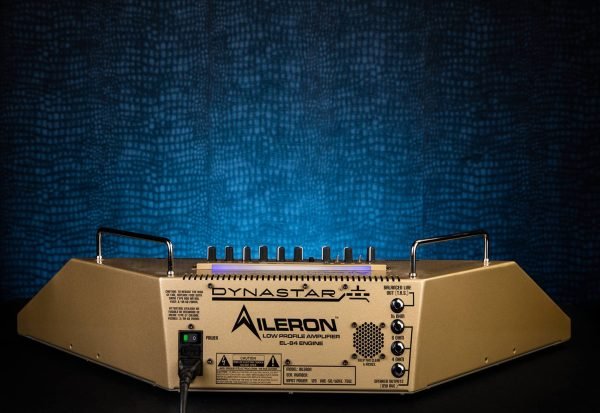When it comes to high-quality audio systems, the debate over Tube Amplifier vs Solid-State Amplifier is as heated as ever. Audiophiles, musicians, and sound engineers each have their preferences, and both technologies offer distinct advantages. Whether you’re building a home audio setup, upgrading your guitar rig, or simply exploring the world of sound, understanding these differences will help you make the right choice.
Understanding the Basics
Before diving into the pros and cons, let’s understand what sets the two apart.
-
Tube Amplifier: Uses vacuum tubes to amplify the audio signal. This technology dates back to the early 20th century and is cherished for its warm, rich, and harmonically pleasing tone.
-
Solid-State Amplifier: Uses transistors to amplify sound. This newer technology, developed in the mid-20th century, is praised for its reliability, efficiency, and clarity.
Both aim to deliver the best possible sound, but the way they achieve it is fundamentally different.
Tone and Sound Quality
One of the primary reasons people compare Tube Amplifier vs Solid-State Amplifier is tone.
-
Tube Amps: Known for producing a warm, natural sound with smooth harmonic distortion when driven hard. Many musicians describe the tone as “organic” or “alive.”
-
Solid-State Amps: Deliver a cleaner, more precise sound that remains consistent even at higher volumes. They excel at reproducing the audio exactly as it is without coloration.
If you want character and warmth, tubes are appealing. If you want accuracy and transparency, solid-state may be your choice.
Dynamic Response and Feel
Tube amplifiers are often celebrated for their dynamic response—how they react to playing intensity. For guitarists, this means that playing softly produces a clean tone, while playing harder introduces natural compression and overdrive.
Solid-state amps, on the other hand, respond more uniformly regardless of playing dynamics, making them predictable and stable.
Durability and Maintenance
When weighing Tube Amplifier vs Solid-State Amplifier, maintenance is a key factor.
-
Tube Amps: Require more care. Tubes wear out over time and need replacement. They can also be more fragile when moved around frequently.
-
Solid-State Amps: Much more durable and virtually maintenance-free, making them ideal for touring musicians or everyday use without fuss.
Size, Weight, and Portability
-
Tube Amps: Generally heavier due to the tubes and transformers.
-
Solid-State Amps: Lightweight and compact, perfect for travel and easy setup.
If portability matters, solid-state wins hands down.
Cost Considerations
Tube amplifiers tend to be more expensive upfront and over time due to maintenance and tube replacements. Solid-state amplifiers, in contrast, are often more budget-friendly and have lower long-term ownership costs.
Applications in Music and Audio
-
For Musicians: Guitarists and bassists often lean toward tube amps for live performances, especially in rock, blues, and jazz.
-
For Audiophiles: Many hi-fi enthusiasts prefer tube amps for their warm, vintage sound.
-
For Studios: Solid-state amps are valued for their reliability and consistent performance in recording environments.
Energy Efficiency
Solid-state amps are far more energy-efficient than tube amps, which consume more power and produce more heat. If you’re environmentally conscious or concerned about electricity costs, this might sway your decision.
The Emotional Factor
Beyond technical specs, there’s a romantic side to Tube Amplifier vs Solid-State Amplifier discussions. Tube amps have a nostalgic appeal; watching the warm glow of tubes while listening to music creates a sensory experience that solid-state amps can’t replicate. For some, this alone justifies the investment.
Final Verdict
In the Tube Amplifier vs Solid-State Amplifier debate, there’s no universal winner—it all depends on your priorities:
-
Choose Tube Amplifier if you want warmth, dynamic response, and a vintage feel, and don’t mind extra maintenance.
-
Choose Solid-State Amplifier if you want reliability, portability, efficiency, and a clear, accurate sound.
Ultimately, the best way to decide is to listen for yourself. Sound preference is deeply personal, and your ears will guide you better than any spec sheet.
